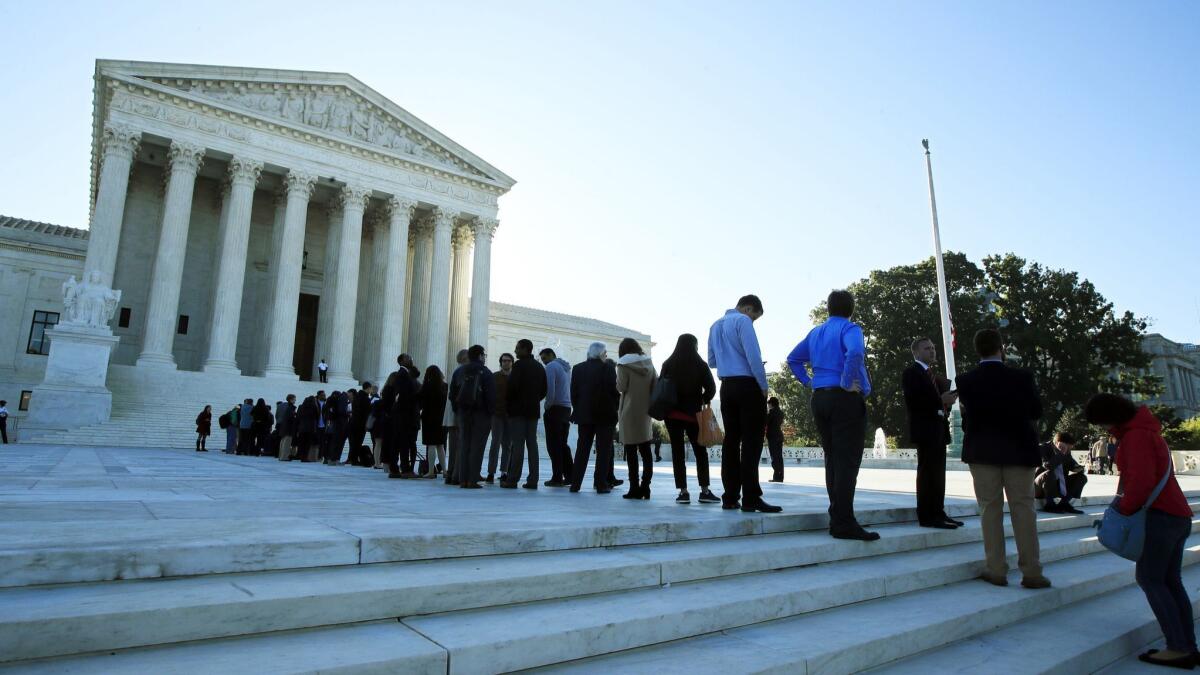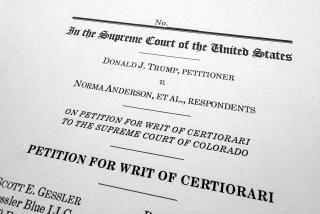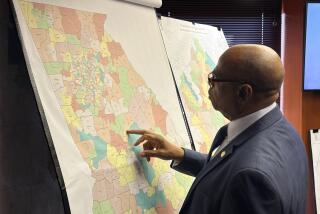Editorial: In an exasperating abdication of responsibility, the Supreme Court says ‘never mind’ on gerrymandering

After raising expectations that it would finally deal with the harm caused by partisan gerrymandering, the Supreme Court on Monday essentially said: “Never mind.” It was an exasperating abdication of responsibility by the court, which should have used the cases before it to strike a blow against the time-dishonored practice of drawing legislative lines to favor the party in power.
Along with many Americans, we had strongly hoped that the court would rule that the Constitution prohibits the unfair rigging of congressional and legislative electoral maps in an effort to entrench one party and weaken another. Such a ruling would have struck a long overdue blow for representative government and put an end to a system that dilutes votes, makes elections less competitive and allows candidates to win seats they would not have won otherwise. Political gerrymandering exacerbates political polarization and denies Americans their right to full participation in the political system.
It is a cynical and undemocratic — but not yet illegal — process that is engaged in by both parties and which is only likely to be solved by the courts.
Sadly, instead of taking the issues on squarely, the court disposed of two cases — one from Wisconsin and one from Maryland — on narrow procedural grounds. The anti-climactic outcome may be an example of principled judicial restraint, but it may also reflect continued agonizing by Justice Anthony Kennedy, whose vote is pivotal on this issue.
Enter the Fray: First takes on the news of the minute from L.A. Times Opinion »
In the Wisconsin case, Democratic voters had challenged a legislative map that was obviously drawn by Republicans to maximize their influence. But, writing for the court, Chief Justice John G. Roberts Jr. said the individual plaintiffs hadn’t proved the sort of injury required to have standing to sue because they hadn’t demonstrated that their votes in their individual districts had been diluted.
In Maryland, it was Republican voters challenging a congressional district drawn by Democrats that led to the defeat of a longtime Republican incumbent. In an unsigned opinion, the court said that the plaintiffs waited too long to seek an injunction seeking to block an election using the 2011 district lines.
For reformers, the greatest consolation in Monday’s rulings was a concurring opinion in the Wisconsin case by Justice Elena Kagan, joined by Justices Ruth Bader Ginsburg, Stephen Breyer and Sonia Sotomayor. Kagan provided a blueprint for how plaintiffs in that case and others might prevail in the future.
Kagan noted that, while the court was right to insist that voters show an injury based on the composition of their individual districts, they could still make use of statewide evidence and seek a statewide remedy. She also noted that standing requirements might be different if gerrymandering were challenged as a violation of the right of association under the 1st Amendment, an idea that Kennedy has entertained.
Eventually, Kagan suggested, the time would come when courts would tell partisan officials to “stop degrading the nation’s democracy.” Monday should have been that day.
Follow the Opinion section on Twitter @latimesopinion and Facebook.
More to Read
A cure for the common opinion
Get thought-provoking perspectives with our weekly newsletter.
You may occasionally receive promotional content from the Los Angeles Times.






